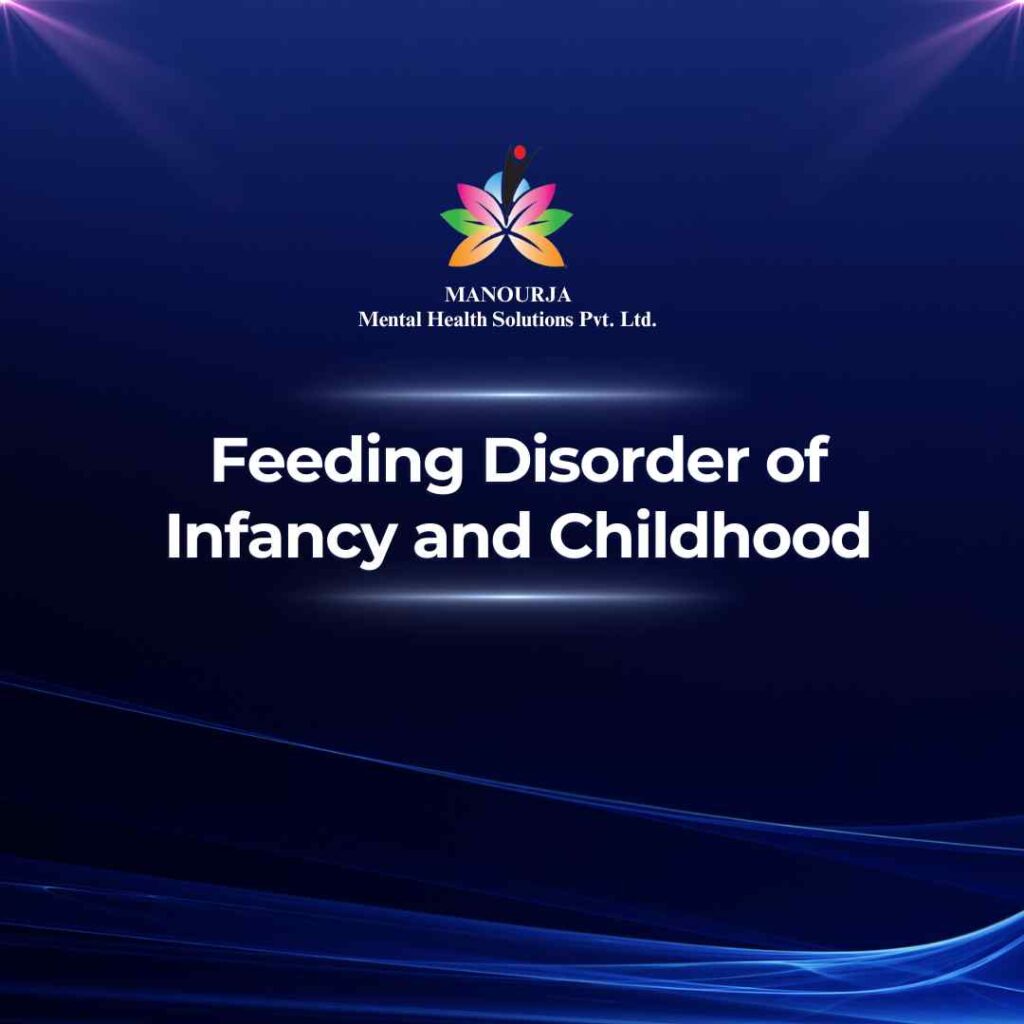Feeding Disorder of Infancy and Childhood

Feeding disorders in young children involve more than just the occasional fussiness at mealtime. These disorders encompass a range of problems related to eating that result in a child not consuming enough nutrition to support healthy growth and development. The issues are not due to a lack of food availability or an underlying medical condition; they stem primarily from psychological or behavioral challenges.
Symptoms of Feeding Disorders in Young Children
- Varied Eating Patterns: Some children with feeding disorders might eat very little, avoid foods with certain textures or tastes, or refuse to eat almost anything at times. This isn’t just picky eating—it’s a persistent problem that significantly impacts their health.
- Nutritional Deficiencies: Because of their restrictive eating habits, these children are at risk for nutritional deficiencies that can affect their overall growth and development, sometimes severely.
- Emotional and Behavioral Signs: Meal times can become a battleground, with significant distress or anxiety displayed by the child. This might manifest as crying, tantrums, or complete avoidance during meals.
- Weight and Growth Impact: Often, one of the most visible signs of a feeding disorder is failing to gain weight or grow as expected. This is sometimes referred to as “failure to thrive,” which is a broad term used to describe children who don’t meet recognized standards of growth.
Types of Feeding Disorders in Young Children
- Selective Eating: This involves extremely picky eating habits that limit the child to a very small selection of foods.
- Avoidant/Restrictive Food Intake Disorder (ARFID): Unlike typical picky eating, ARFID involves an intense aversion to eating certain foods that significantly impairs normal eating patterns.
- Sensory-Based Aversions: Some children may refuse foods based on their texture, color, or smell, which can be linked to underlying sensory processing issues.
- Feeding Disorder of State Regulation: In infants, this type can involve difficulties in managing feeding due to being overly fussy or not alert enough during feeding times.
Treating Feeding Disorders in Young Children
The approach to treating these disorders is as diverse as their symptoms and often involves a team of professionals:
- Nutritional Guidance: A pediatric dietitian can provide strategies to ensure that the child receives balanced nutrition, possibly including supplements or special high-calorie foods if necessary.
- Behavioral Techniques: These might include structured meal times, positive reinforcement for trying new foods, and techniques to gradually introduce new textures or flavors.
- Family Support and Education: Parents and caregivers are often given tools and strategies during therapy sessions to support their child’s eating habits at home. This includes learning how to manage stress around meal times and creating a supportive dining environment.
- Therapeutic Interventions: Occupational therapy can be particularly useful for children who have sensory aversions, helping them get used to the textures and sensations of different foods. Speech or occupational therapists can also assist with mechanical challenges, such as difficulties with chewing or swallowing.
- Counseling: If there are psychological or emotional factors contributing to the feeding disorder, counseling might be recommended for the child or even for the family.
The key to effectively managing feeding disorders is early intervention and a coordinated approach that involves caregivers, medical professionals, and therapists. With the right support, most children can overcome these challenges and learn to enjoy a variety of foods, leading to healthier developmental outcomes.
At MANOURJA, we believe in the transformative power of counseling. Our experienced therapists offer a safe and supportive space where you can explore your thoughts, emotions, and challenges. Through personalized counselling sessions, we’ll work together to develop coping strategies, build resilience, and achieve lasting positive change. Discover the path to a healthier, happier you with MANOURJA counselling services.
MANOURJA Rehabilitation Services
At MANOURJA, we’re dedicated to helping you in rebuild your life, after difficult times. Our rehabilitation services focus on understanding what you need to move forward, whether you’re recovering from addiction, trauma, or any psychological – social challenges. We create personalized plans, that are all about helping you, regain your strength and find hope again. With a caring team by your side, you’ll have the support to make real progress and take steps toward a brighter, healthier future.
